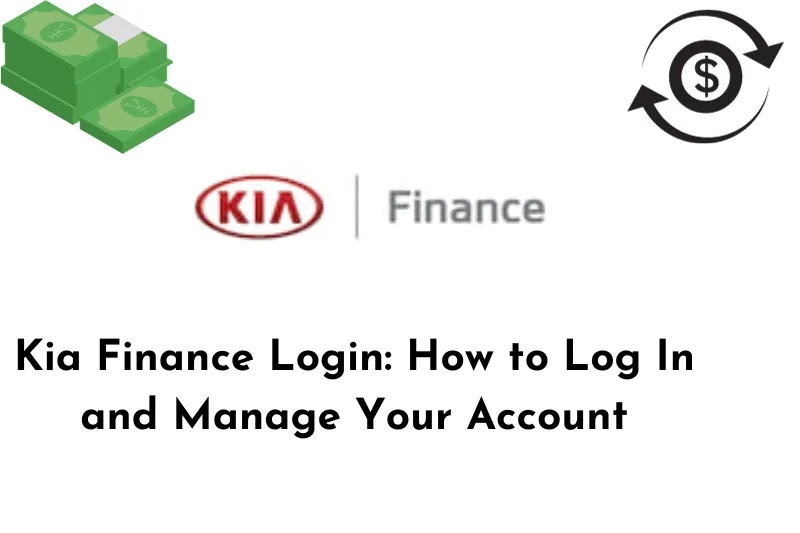 |
| Debt Consolidation Loan |
Introduction:
Personal finance, there’s a constant struggle for many individuals who find themselves juggling multiple high-interest debts. Picture this: you’re managing credit card payments, a personal loan, and perhaps even a lingering medical bill. Each debt has its own due date, interest rate, and payment amount. It’s like trying to tame a wild beast, and it’s no surprise that many people find themselves overwhelmed and financially strained.
Enter the debt consolidation loan, a financial knight in shining armor that offers a solution to this chaotic financial situation. In this article, we’re going to explore the concept of debt consolidation loans in greater depth. We’ll cover how they work, the benefits they offer, and provide some practical advice for those considering this financial strategy.
1.Understanding Debt Consolidation Loans
Let’s start at the beginning: what exactly is a debt consolidation loan? At its core, it’s a personal loan designed to streamline your financial life. This financial tool enables you to merge all your outstanding debts into one single loan with a fixed monthly payment.
The process is relatively straightforward: you borrow an amount equal to your total outstanding debt, use that money to pay off your existing debts, and voilà – you’re left with just one monthly payment to handle.
Imagine you have credit card debt, a personal loan, and an outstanding medical bill. Each of these comes with its interest rate, due date, and varying payment amounts.
This can quickly become a logistical nightmare. With a debt consolidation loan, you can bring all these debts under one roof, simplifying your financial obligations.
2.Points to Ponder Before Consolidating
While debt consolidation loans offer clear benefits, they may not be the right solution for everyone. Before you decide to consolidate your debts, here are some essential points to ponder:
Qualification Criteria:
To qualify for a debt consolidation loan, you will typically need a good credit score and a steady income. Lenders use these criteria to assess your creditworthiness. It’s crucial to ensure you meet these requirements before pursuing consolidation.
Comparison Shopping:
Not all debt consolidation loans are created equal. Interest rates can vary significantly among lenders, so it’s imperative to shop around. Compare interest rates, fees, and loan terms from multiple lenders to find the best fit for your financial situation.
Avoiding Excessive Debt:
While consolidating debt can be advantageous, it’s vital not to accumulate more debt than you can comfortably manage. Be cautious not to take on additional financial burdens, as this can defeat the purpose of consolidation.
3.Applying for a Debt Consolidation Loan
If you’re intrigued by the idea of a debt consolidation loan, you might be wondering how to go about it. Here we have seen Step by Step method :
Research and Compare: Begin by researching lenders and their debt consolidation offers. Directly done by the lender to Collect multiple loan quotes to compare and contrast.
Application Process: Once you’ve identified a loan offer that aligns with your needs, submit an application. This typically involves providing personal and financial information, along with details about your existing debts.
Lender Review: After you submit your application, the lender will assess your eligibility. They’ll consider factors such as your credit score, income, and current debt load. Based on their evaluation, they will decide whether to approve your loan application.
Loan Disbursement: If your application is approved, you’ll receive the loan proceeds. Use these funds to pay off your existing debts, effectively consolidating them into one manageable obligation.
4.Tips for a Successful Debt Consolidation Journey
Considering debt consolidation? Here are some practical tips to ensure your journey is smooth and successful:
Affordability: The most crucial consideration is whether you can afford the new monthly payment. While consolidation can lower your monthly payments, it’s essential that this amount remains manageable within your budget.
Discipline: Avoid the temptation to accumulate more debt once your existing debts are consolidated. Discipline in your spending habits is crucial. Remember, the goal is to reduce debt, not add to it.
Comparison Shopping: Always compare interest rates, fees, and loan terms from various lenders. Knowledge is power, and the more informed your decision, the better the outcome.
Read the Agreement: Before signing any loan agreement, read it carefully. Understand all the terms, including the interest rate, repayment schedule, and any potential fees. Don’t hesitate to ask questions if something is unclear.
Timely Payments: Lastly, make your monthly payments promptly and in full. Consistent, on-time payments will help you build a positive credit history, avoid late fees, and ultimately improve your financial well-being.
5.FAQ-Debt Consolidation Loan
What are 4 things debt consolidation can do?
Debt consolidation serves multiple purposes that can significantly benefit your financial well-being. Firstly, it simplifies your finances by consolidating multiple high-interest debts into a single loan with a fixed monthly payment.
This eliminates the hassle of managing numerous due dates and varying interest rates.
Secondly, it often allows you to secure a loan with a lower interest rate than your existing debts, potentially saving you a substantial amount of money on interest payments over the life of the loan.
Thirdly, debt consolidation typically leads to reduced monthly payments, providing you with immediate financial relief and making it easier to balance your budget.
Lastly, it enhances your financial management by streamlining your debt into one payment, reducing the chances of missed payments and helping you stay on track with your repayment plan.
Is debt consolidation a good way to get out of debt?
Debt consolidation can indeed be a beneficial strategy for those looking to manage and ultimately reduce their debt. However, its effectiveness depends on individual circumstances.
Debt consolidation is particularly advantageous if you possess a good credit score, a stable source of income, and are committed to disciplined financial management.
By consolidating high-interest debts into a single loan with a potentially lower interest rate, you can make your debt more manageable and affordable.
Nonetheless, it’s essential to carefully assess your financial goals, consider alternative debt reduction strategies, and consult with a financial advisor to determine whether debt consolidation aligns with your specific needs.
What are the benefits of a debt consolidation loan?
A debt consolidation loan offers several advantages, making it a compelling option for many individuals. Firstly, it often provides access to lower interest rates compared to your existing debts.
This can result in significant long-term savings as less of your money goes toward interest payments. Secondly, it reduces your monthly payments by combining multiple debts into one.
This simplifies your budgeting process, making it easier to manage your finances. Thirdly, it streamlines your debt management, as you only need to focus on making one monthly payment.
This simplification minimizes the likelihood of missed payments and helps you maintain a structured repayment plan. Lastly, consistent, on-time payments on your consolidation loan can contribute positively to your credit score, potentially improving your overall creditworthiness.
What is a consolidation loan and how can it help you to manage credit?
A consolidation loan is a type of personal loan specifically designed to help individuals manage their credit by simplifying debt management.
It works by combining multiple high-interest debts, such as credit card balances and personal loans, into a single, manageable loan.
This single loan typically offers a lower interest rate than the combined rates of the original debts, potentially saving you money on interest.
Managing credit becomes more straightforward because you only need to make one monthly payment, which simplifies budgeting and reduces the risk of missed payments.
Essentially, a consolidation loan helps you regain control over your credit by providing a structured and efficient way to pay down your debt and improve your overall financial health.
What are the benefits of a consolidation strategy?
A consolidation strategy offers several compelling benefits. Firstly, it streamlines your financial life by reducing multiple payments into one, simplifying your debt management.
This consolidation can lead to significant interest savings if you secure a loan with a lower interest rate than your existing debts.
Secondly, it improves budgeting by replacing numerous variable payments with a single, predictable monthly payment.
This predictability enhances your ability to plan and manage your finances effectively.
Thirdly, a consolidation strategy reduces the mental and emotional stress associated with managing multiple debts, offering peace of mind and emotional relief.
Ultimately, it provides a strategic approach to managing and reducing debt, helping you regain financial stability and control over your financial future.
What is the advantage of consolidation?
The primary advantage of debt consolidation lies in its ability to help individuals regain control over their financial situation.
By consolidating multiple high-interest debts into a single, manageable loan, individuals can potentially secure lower interest rates, reduce their monthly payments, and simplify their financial obligations.
This structured approach to debt management allows for more effective budgeting and reduces the mental and emotional burden associated with managing multiple debts.
Furthermore, it provides a clear path toward becoming debt-free, which can significantly improve one’s financial well-being and overall quality of life. In summary, the advantage of consolidation is the opportunity it offers to achieve greater financial stability, reduce debt-related stress, and work towards a more secure financial future.
Conclusion:
In conclusion, a debt consolidation loan can be a powerful financial tool to streamline your debt management, reduce your monthly financial burden, and save money on interest.
However, it’s essential to approach it with careful consideration, thorough research, and a commitment to responsible financial management. By doing so, you can pave the way to a debt-free and more financially secure future.
Debt consolidation is not a one-size-fits-all solution, but for many, it’s a path towards regaining control over their finances and achieving their long-term financial goals.
If you’re currently grappling with multiple debts, it might be the right time to explore the possibility of a debt consolidation loan and embark on your journey toward financial freedom.

